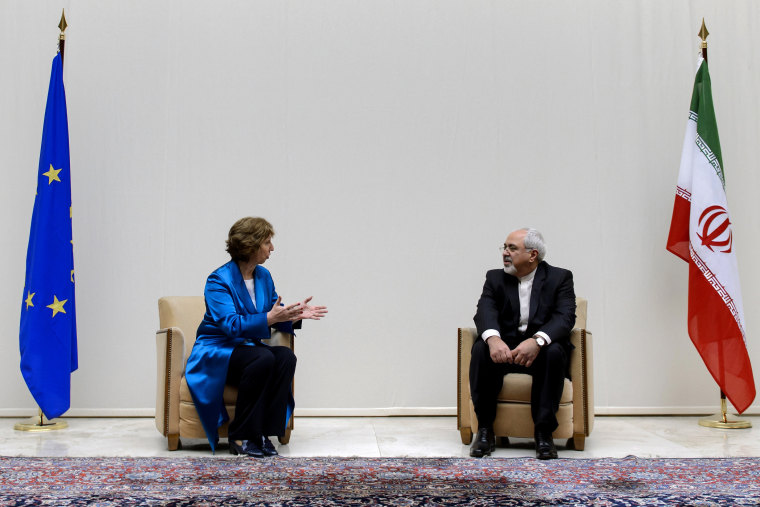As six western nations prepared to engage with Iran in the first discussions on the future of its nuclear program, NBC’s Ann Curry sat down with foreign minister Mohammad Zarif in an exclusive interview.
“We should not shoot for concessions, either getting concessions or giving concessions. We should aim for finding solutions,” Zarif told Curry on the eve of talks in Geneva—the first since President Hassan Rouhani’s election. Rouhani has signaled a willingness to prove Iran’s nuclear program is aimed at harvesting civilian energy, by way of allowing inspectors into the production facilities. And the west has indicated it would peel back some of the debilitating sanctions imposed on the country in return.
“You always have to take the first step,” Zarif said. “And probably the first step is the most difficult step, but it takes courage and hopefully leadership to take that step. And once you've taken it, the road is not that difficult.”
Zarif made a one-hour PowerPoint presentation before representatives of the U.S., China, Russia, the U.K., France and Germany in Geneva on Tuesday, and the leaders conversed primarily in English.
Curry reported that a senior State Department official said afterward that “after the presentation for the first time ever there was a detailed and very highly technical conversation in these talks.”
Rouhani and Zarif have both said that they have the backing of Iran’s supreme leader, Ayatollah Khomeini, to negotiate on the nuclear program –but have maintained the country’s right to harvest small amounts of nuclear energy. The West has long feared the production is a front for a secret weapons program.
The countries attending the Geneva conference have called on Iran to stop its enrichment of high-grade uranium, shut an enrichment plant and reduce its stockpiles of the material, which can be used to build nuclear bombs. It is unclear as of this writing whether the Iranian proposal met that standard.
Talks are scheduled to continue in Geneva on Wednesday.
